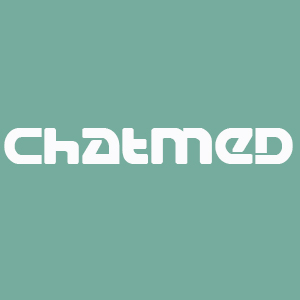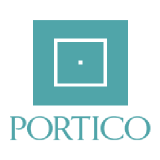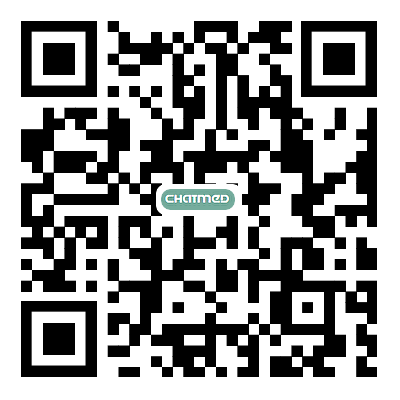Year-end reflections of CHATmed - 2023
In 2023, significant advancements in AI technologies, exemplified by ChatGPT, had a profound impact on academic research across science, engineering, and medicine. The convergence of wearable and flexible sensing, medical imaging, AI, and information technology continues to reshape healthcare. The inception of the journal of Connected Health And Telemedicine (CHATmed) aimed to foster collaboration and innovation in these areas, offering a platform for sharing research on connected health and telemedicine. It encompasses a broad range of topics, including technical innovations, clinical applications, standards, and economic and policy studies related to digital healthcare solutions.
The new international Editorial Board, chaired by myself as the Editor-in-Chief along with Prof. M. Jamal Deen and Prof. Dinggang Shen as Co-Editors-in-Chief, comprises 33 distinguished scientists in various aspects of interconnected health and telemedicine from 14 countries/regions. Besides the Editorial Board, an international Junior Editorial Board consisting of 8 early-career scientists was established, offering them opportunities to engage in editorial responsibilities.
Throughout 2023, CHATmed published three quarterly issues featuring a total of 18 articles, including reviews, original articles, commentaries, editorials, and perspectives. Upholding academic rigor, all published manuscripts underwent a stringent peer-review process. To date, our readership spans across numerous countries, amassing over 39,511 views and 13,387 downloads globally.
In 2023, I was honored with the prestigious William J. Morlock Award by the IEEE Engineering in Medicine and Biology Society (EMBS), recognizing my contributions to unobtrusive and wearable technologies. Subsequently, the Editorial Office conducted an interview with me wherein I shared current research in wearable technology and discussed future prospects for CHATmed. The interview was featured on the journal website, garnering positive responses within this specialized field.
Additionally, I initiated a Special Issue in CHATmed, titled “Selected Papers from the 14 the International Symposium and School on Biomedical and Health Engineering which was held together with the 21st IEEE International School and Symposium on Medical Devices and Biosensors (MDBS-BHE’ 2023)”. This issue is dedicated to publishing scholarly outputs from the conference, with more than 20 high-quality submissions currently undergoing peer review for publication.
Looking forward to 2024, CHATmed anticipates the publication of at least five Special Issues covering diverse research in interconnected health. These issues include the following titles:
“Multimodal Learning in Medicine: Unifying Multimodal Data for Providing Accurate Diagnostics and/or Prognostics”, guest-edited by Prof. Fuyong Xing and Prof. Yu Gan; “Digital Innovations in Cardiovascular Medicine: Advancing Healthcare through Technology”, guest-edited by Prof. Enno van der Velde; and “Digital Health Interventions and Telemedicine in the Aftermath of a Global Pandemic”, guest-edited by Prof. Stefano Omboni. Submissions are still open for any of the Special Issues listed on our website. Additionally, we plan to publish a Special Issue on “Selected Papers from the MDBS-BHE’23”, highlighting exciting scientific reports, selected full papers, and contributions presented at the conference.
In the forthcoming year, CHATmed commits to organizing a series of webinars and academic interviews for researchers in interconnected health and telemedicine, focusing on emerging topics. We aim to delve into the application and prospects of managing common diseases such as cardiovascular and cerebrovascular disorders and chronic diseases within these realms. Furthermore, CHATmed intends to expand its international Editorial and Junior Editorial Boards, actively recruiting distinguished scholars worldwide to enhance academic diversity and depth.
We envision CHATmed continue to evolve, heightening its academic influence and serving as a high-quality platform for researchers to share scientific data, knowledge, and insights. Notably, the journal completely waives Article Processing Charges (APC), offering scholars an excellent opportunity to publish their experimental data, academic commentaries, and opinions freely.
In 2023, CHATmed received substantial support and recognition from the scientific community, for which we are profoundly grateful. Looking ahead to 2024, we aspire to achieve greater success and provide enhanced services to researchers in interconnected health and telemedicine sectors.
We extend heartfelt wishes to all colleagues for a healthy and prosperous 2024.
DECLARATIONS
Authors’ contributions
Writing and revision of the article and approval of the final version: Zhang YT
Availability of data and materials
Not applicable.
Financial support and sponsorship
None.
Conflicts of interest
The author declared that there are no conflicts of interest.
Ethical approval and consent to participate
Not applicable.
Consent for publication
Not applicable.
Copyright
©The Author 2023.
How to Cite
Download Citation
Export Citation File:
Type of Import
Tips on Downloading Citation
Citation Manager File Format
Type of Import
Direct Import: When the Direct Import option is selected (the default state), a dialogue box will give you the option to Save or Open the downloaded citation data. Choosing Open will either launch your citation manager or give you a choice of applications with which to use the metadata. The Save option saves the file locally for later use.
Indirect Import: When the Indirect Import option is selected, the metadata is displayed and may be copied and pasted as needed.
About This Article
Copyright
Data & Comments
Data















Comments
Comments must be written in English. Spam, offensive content, impersonation, and private information will not be permitted. If any comment is reported and identified as inappropriate content by OAE staff, the comment will be removed without notice. If you have any queries or need any help, please contact us at [email protected].